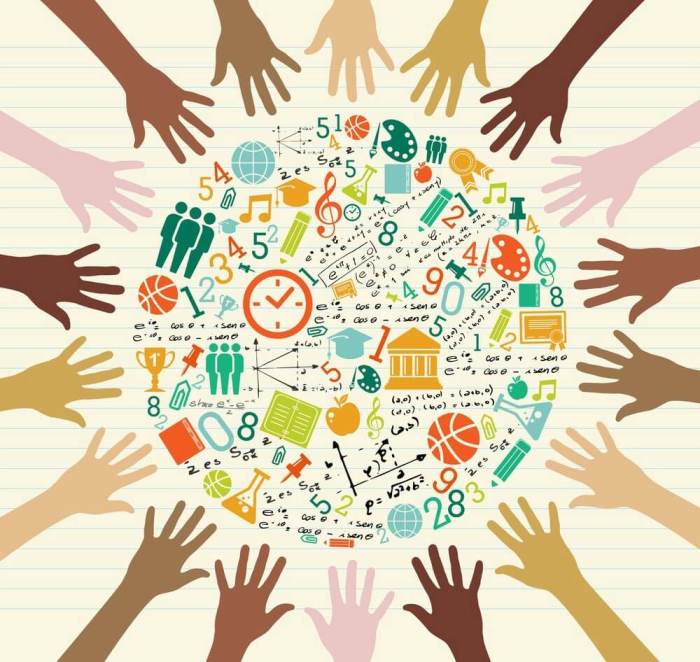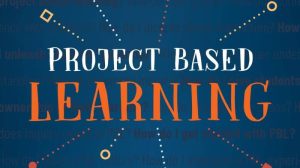
Global Education History sets the stage for this enthralling narrative, offering readers a glimpse into a story that is rich in detail and brimming with originality. From the origins of formal education to the impact of globalization, this exploration delves deep into the educational landscape of the world.
As we unravel the evolution of educational systems and the role of education in personal and societal development, a fascinating journey awaits those seeking to understand the intricate tapestry of global learning.
Global Education History

Formal education has a long history that dates back to ancient civilizations such as Mesopotamia, Egypt, and China. In these early societies, education was primarily reserved for the elite class and focused on topics like writing, mathematics, and philosophy.
Origins of Formal Education
The origins of formal education can be traced back to ancient civilizations where knowledge was imparted through oral traditions and apprenticeships. The first formal schools were established in Mesopotamia and Egypt, where scribes were trained to record information and maintain records.
Evolution of Educational Systems
Over time, educational systems evolved to include a more structured curriculum and standardized testing. The Greeks introduced the concept of a well-rounded education, incorporating subjects like literature, music, and physical education. During the Middle Ages, monasteries and cathedral schools became centers of learning, paving the way for the establishment of universities in Europe.
Impact of Globalization on Education
Globalization has had a profound impact on education by promoting cultural exchange, international collaboration, and the spread of knowledge across borders. The advent of the internet and digital technologies has revolutionized the way information is accessed and shared, making education more accessible to people worldwide. However, globalization has also raised concerns about the standardization of education and the loss of local traditions and languages.
Education Definition
Education can be defined as the process of acquiring knowledge, skills, values, and attitudes through various methods and experiences. It plays a crucial role in shaping individuals and societies by providing them with the tools necessary for personal and collective development.
Types of Education
- Formal Education: This type of education is structured and systematic, usually provided in schools and institutions following a curriculum. It includes primary, secondary, and higher education levels.
- Informal Education: Informal education occurs outside traditional classrooms and is often spontaneous and unstructured. It can be gained through daily experiences, interactions, and observations.
- Non-formal Education: Non-formal education is organized but not necessarily structured like formal education. It aims to meet the learning needs of specific groups and can take place in community centers, workshops, or online platforms.
Role of Education in Development
Education plays a vital role in personal development by equipping individuals with the necessary knowledge and skills to succeed in their careers and lives. It also contributes to societal development by fostering critical thinking, promoting social cohesion, and driving economic growth through a skilled workforce.
Education Essay
When writing an education essay, it is essential to focus on engaging and informing your readers effectively. Here are some tips to help you create a compelling piece:
Significance of Education Essays in Academia
Education essays play a crucial role in academia as they allow students to demonstrate their understanding of various educational concepts and theories. These essays help students develop critical thinking skills, analytical abilities, and the capacity to communicate complex ideas effectively.
Themes/Topics for Education Essays
- The Impact of Technology on Education
- The Role of Teachers in Student Success
- Educational Inequality and Its Effects on Society
- The Benefits of Multicultural Education
- The Evolution of Education Systems Worldwide
Education Games

Educational games have become increasingly popular as tools to enhance learning and engage students in a fun and interactive way. These games are designed to not only entertain but also to educate, making the learning process more enjoyable and effective.
List of Educational Games
- Math Blaster
- Spelling City
- Oregon Trail
- SimCity EDU
- CodeCombat
How Educational Games Improve Cognitive Skills
Educational games can improve cognitive skills in various ways. By engaging in problem-solving tasks, critical thinking exercises, and decision-making scenarios, students can enhance their cognitive abilities such as memory, attention, and processing speed. These games also promote creativity, collaboration, and adaptability, all of which are essential skills for success in the 21st century.
Impact of Gamification in Education
Gamification in education refers to the integration of game elements, such as point systems, challenges, and rewards, into the learning process. This approach has been shown to increase student motivation, engagement, and retention of information. By making learning more interactive and enjoyable, gamification can help students develop a positive attitude towards education and foster a lifelong love for learning.
Education Film

When it comes to the portrayal of education in films, we often see a wide range of themes and perspectives that can shape our perceptions of the educational system. Films have the power to influence how we view teachers, students, classrooms, and the overall learning experience.
Portrayal of Education in Films
Many films depict the challenges and triumphs of teachers and students in educational settings. From inspirational stories of dedicated educators to coming-of-age tales set in schools, these movies can provide insight into the complexities of the education system.
- Dead Poets Society: This film explores the impact of an unconventional teacher on his students, encouraging them to think for themselves and pursue their passions.
- The Breakfast Club: A classic film that delves into the lives of high school students from different backgrounds who come together during detention and learn more about each other.
- Freedom Writers: Based on a true story, this movie follows a teacher who inspires her at-risk students to overcome their struggles through writing.
Influence of Films on Educational Perceptions
Films can shape our views on education by highlighting both the positive and negative aspects of the system. They can inspire viewers to consider the importance of teachers, the value of education, and the impact it can have on individuals and society as a whole.
- Stand and Deliver: This film showcases the transformative power of education and the dedication of a teacher who believes in his students’ potential.
- Lean on Me: Based on a true story, this movie follows a principal who takes drastic measures to improve a struggling school and uplift its students.
- School of Rock: A comedy that explores the idea of unconventional teaching methods and the importance of creativity and passion in education.
Popular Educational Films and Their Themes
Many popular educational films touch on themes such as mentorship, personal growth, social issues, and the importance of education in shaping one’s future. These movies often resonate with audiences and leave a lasting impact.
- Coach Carter: This film emphasizes the importance of discipline, teamwork, and academic success through the story of a high school basketball coach.
- Good Will Hunting: A tale of self-discovery and intellectual potential, highlighting the transformative power of education and mentorship.
- To Sir, with Love: This classic film explores the challenges and rewards of teaching in an inner-city school, focusing on the relationships between teachers and students.
Education Banner
An effective educational banner should be visually appealing, concise, and informative. It should capture the attention of the audience and convey the message clearly. The elements of an effective educational banner include striking visuals, relevant text, and a call to action.Visual communication plays a crucial role in educational banners as it helps in conveying information quickly and effectively. Images, colors, and fonts can all contribute to the overall impact of the banner and make it more engaging for the viewers.
Examples of Successful Educational Banners
- 1. A banner promoting a literacy campaign with vibrant colors, images of books, and a clear message encouraging people to read.
- 2. An educational institution banner featuring smiling students, a campus backdrop, and key information about enrollment dates and programs offered.
- 3. A banner for an educational event with eye-catching graphics, event details, and a registration link for attendees.
Education Counselor
An education counselor plays a crucial role in the development and success of students by providing guidance, support, and resources to help them navigate their educational journey effectively.
Role of an Education Counselor
- Assisting students in setting academic goals and developing an educational plan.
- Providing information on various educational pathways, programs, and career options.
- Offering guidance on academic and personal challenges that students may face.
- Helping students explore their interests, strengths, and weaknesses to make informed decisions.
- Supporting students in overcoming obstacles and developing essential skills for academic success.
Skills and Qualifications
- Strong communication and interpersonal skills to effectively interact with students, parents, and educators.
- Empathy and understanding to connect with students and address their individual needs.
- Knowledge of educational systems, career pathways, and counseling techniques.
- Ability to assess student needs, provide appropriate guidance, and monitor progress.
- Educational background in counseling, psychology, education, or a related field.
Challenges Faced by Education Counselors
- Managing a large caseload of students while providing personalized support to each individual.
- Dealing with students who may have complex academic, personal, or emotional issues.
- Balancing administrative duties with direct student counseling and support.
- Keeping up-to-date with changing educational trends, policies, and resources.
- Working collaboratively with teachers, parents, and other stakeholders to ensure student success.
Education Degree
Obtaining an education degree is a significant milestone for individuals pursuing a career in the field of education. It equips them with the necessary knowledge and skills to excel in teaching and related roles.
Types of Education Degrees and Significance
- Bachelor’s Degree in Education: This degree provides a foundation in educational theory and practice, preparing individuals for entry-level teaching positions.
- Master’s Degree in Education: A more advanced degree that allows educators to specialize in a particular area such as curriculum development or educational leadership.
- Doctorate in Education (EdD or PhD): The highest level of education degree, focusing on research and leadership in the field of education.
Traditional vs. Online/Distance Learning Degrees
Traditional education degrees typically involve in-person classes and interactions with professors and peers. On the other hand, online or distance learning degrees offer flexibility and convenience for working professionals or those with other commitments.
Impact of Earning an Education Degree on Career Opportunities
- Increased Job Opportunities: Having an education degree opens up a wide range of career options in teaching, administration, curriculum development, and more.
- Higher Earning Potential: Educators with advanced degrees often command higher salaries and have better chances for career advancement.
- Professional Development: Earning an education degree enhances teaching skills, knowledge of educational trends, and pedagogical techniques, leading to improved student outcomes.
In conclusion, Global Education History serves as a beacon guiding us through the diverse realms of education. It not only sheds light on the past but also illuminates the path to a brighter future through knowledge and understanding.
Clarifying Questions
What were some key events that shaped global education history?
Events such as the establishment of formal education institutions, the spread of educational ideologies across continents, and the integration of diverse cultures into learning systems have been pivotal in shaping global education history.
How has globalization impacted education throughout history?
Globalization has facilitated the exchange of knowledge, educational practices, and cultural perspectives on a global scale, leading to a more interconnected and diverse educational landscape over time.
What are the different types of education degrees available?
Education degrees range from bachelor’s and master’s degrees to doctoral and specialized degrees, each offering unique pathways for individuals to pursue careers in various fields of education.





